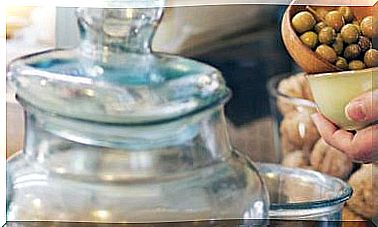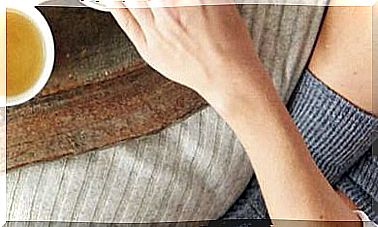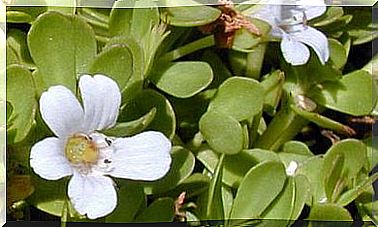17 Tips To Live Longer And Healthier
We have selected some of the best advice offered by doctors, therapists and nutritionists that have appeared on the pages of the magazine Bodymind. You can use them as a guide to enhance your well-being.

The most advanced knowledge in medicine can be translated into simple advice that we can incorporate into our daily lives through eating and healthy habits.
Keep your telomeres long
Maria blasco. Molecular biologist
“Our telomeres listen to us. They assimilate the instructions we give them with our way of life,” says Elizabeth Blackburn, a biologist and Nobel Prize winner in Medicine.
Telomeres, the structures that protect the ends of chromosomes, are like the clock of cells, since they mark our life span. As we age they shorten and our tissues lose their ability to regenerate.
If you manage to maintain its length, you will live longer years with more health. To do this, apart from following a fresh and natural diet, this is what you can do:
- Fewer calories: choose the right foods and be left with the feeling that you could eat more.
- Banish stress: stress management habits lengthen telomeres by 10%. Psychosomatic techniques, such as meditation and chikung, have been shown to increase the concentration of the enzyme telomerase, which regenerates telomeres.
- Sleep more and better: Rest is essential for the body to purify and repair itself at night.
- Cut the sugar: More sugar consumption is linked to shorter telomeres and poorer health.
- Exercise: According to professor José Viña, it should be given the importance of a medical prescription.
- Positive attitude: Enjoying social life and facing situations in a positive way protects your telomeres.
Take care of your mitochondria
Dr. Tomás Álvaro. Doctor and psychologist
Your ability to move and think, everything you do, requires energy. This is manufactured in the mitochondria, organelles inside cells that have their own DNA and act as true power plants.
Healthy mitochondria slow down aging and help prevent cancer and neurodegenerative diseases. To protect them:
- Avoid chronic stress and toxins like alcohol, tobacco, unnecessary drugs, and environmental pollutants.
- Ensure the nutrients they need to produce energy and counteract oxidation –especially vitamins C and group B, coenzyme Q10, L-arginine and polysaccharides–,
- Do strength exercise along with high-intensity interval training.
Nourish your cells well
Martina Ferrer. Dietitian-nutritionist
When choosing a healthy food, counting calories is staying on the tip of the iceberg, since many very energy (caloric) products do not provide nutrients and include additives and unknown ingredients that do not add anything good to the body.
The main thing is the nutritional density, that is, the amount of micronutrients in a food in relation to its calories.
The micronutrients and phytochemicals activate satiety and reduce inflammation. The body relaxes and organic functions improve, since this contribution is vital for the majority of enzymatic reactions on which health depends to take place.
Dr. Joel Fuhrman proposes following a “nutritious” diet, selecting foods for their nutritional quality. His recipes include vegetables of all colors, fruits, legumes, nuts and seeds; and refined and ultra-processed are avoided.
The ANDI index classifies foods by their nutritional density. At the top of the ranking we have kale and many other leafy greens, carrot, broccoli and cauliflower, bell pepper, asparagus, mushroom, tomato, strawberry, sweet potato, zucchini, artichoke and blueberry.
These foods hardly provide protein, carbohydrates and fat, so we must supplement them with other more caloric, but healthy, such as legumes or olive oil.
Keep estrogens under control
Dra. Natalia Eres. Oncologist Physician
In women, excess estrogen is associated with premenstrual syndrome, depression, endometriosis, polycystic ovaries or fibroids, as well as an increased risk of uterine and breast cancer.
I propose an antiestrogenic diet rich in foods with aromatase inhibitors, an enzyme that intervenes in the production of estrogens: resveratrol, quercetin, apigenin, protoanthocyanins … Oats, cabbages, berries, seeds, citrus, onion, garlic, pomegranate, grape or olive oil are some examples.
Strengthening the liver, taking care of the microbiota and avoiding endocrine disruptors is also essential.
Activate your inner detox
Dra. Isabel Belaustegui. Medical expert in nutrition
Our body has a natural recycling mechanism to eliminate what is no longer useful and could harm us, and take advantage of what is valid to generate new cellular components.
This mechanism is known as autophagy and the most powerful tool to activate it is fasting. Fasting facilitates detoxification and improves the functioning of the purifying organs: intestine, liver, kidney, skin and lungs.
The simplest fast is intermittent. Extend your overnight fast, have dinner early, or skip dinner or breakfast the next day to go 14-16 hours without eating. You can do it daily or on alternate days of the week.
Stop eating plastic
Dr. Nicolás Olea. Professor, expert in endocrine disruptors
If you eat organic food, your exposure to pesticides is lower. In French populations that have been doing it for 20 years, the risk of certain cancers has decreased.
Flee from processed foods and fast food, whose packaging is rich in endocrine disruptors. Try eating at home or taking a glass lunch box to work.
And, above all, remove the plastic from your purchases and kitchen containers, because we all urinate every day disruptive agents present in plastic such as bisphenol.
Know your exposome
Marta Schuhmacher. Researcher in environmental health
Most people live in cities where health enhancing factors such as clean air and nature are scarce, yet all kinds of chemicals (2,000 new ones are invented every year), noise and stress abound.
It is no longer a matter of evaluating the risk of a single substance, but of knowing the impact of the sum of all of them, the exposome. As for environmental pollution, the finest particles are the most dangerous, especially for children, because they can reach the alveoli and pose more oxidative stress.
The effect of these ultrafine particles can be counteracted in part with a diet rich in antioxidants, but we should all travel much more on foot and use more ecological means of transport, such as bicycles, or public transport to reduce pollution in this way.
Your cells ask you to move
Katy Bowman. Expert in biomechanics
All organic functions require some kind of movement: digestion, immunity, reproduction… Furthermore, a rigid body implies a rigid mind.
Your efforts to take care of yourself will be frustrated on a cellular level without the loads that natural movement brings. Exercising is essential, but also incorporating into our routine the movements that help us survive in a natural environment: carrying weights on our arms, walking long distances on uneven terrain, squatting, picking up things from the ground …
Do not limit them, like exercise, to a moment of the day: modify your routines to include them in everything you do.
Produces hormone of happiness
Marta Leon. Chemical engineer expert in naturopathic medicine
90% of serotonin, the hormone of happiness, is produced in the intestine. Taking care of the intestinal flora with probiotic foods and nutrients is a therapeutic strategy for disorders of the brain-intestine axis related to serotonin.
To produce it, it is advisable to reduce the consumption of sugar and increase the consumption of whole grains and foods rich in vitamin B6. This vitamin is also essential for producing norepinephrine, which influences mood, and melatonin, which regulates the biological clock.
Defenses in shape
Dra. Susana Muñoz. Medical
The immune system protects us from external and internal pathogens, but it should also recognize and respect healthy cells to avoid autoimmune disorders. The role of the microbiota is essential for the functioning of the immune system.
Take care of it with probiotics – such as sauerkraut, kimchi, tempeh or miso – and foods rich in fiber. Also good supports are green tea – its epigallocatechin-3-gallate increases the number and action of regulatory T lymphocytes – and ginger, which moderates the excessive immune response mediated by TH2 helper cells.
Heart and brain together
Llorenç Guilera. Psychologist
The rhythm of the heart influences the brain processes that control the autonomic nervous system, cognitive function and emotions: if you control this rhythm, you will prevent “in origin” that the brain generates negative emotions.
HeartMath scientists propose a technique to achieve this:
- Sit down and become aware of your body and emotional state;
- Bring your attention to your chest and imagine that you breathe with your heart; When you breathe in, attract feelings of inner calm and, when you breathe out, give yourself balance and self-care.
- Commit to the calm state you experience.
Go zero waste, live without producing waste
Ally Vispo. Yoga teacher, disseminator of zero waste
Starting a life “zero waste” in a hyper-consumer world sends a powerful message to the industry: “We are not going to buy products whose packaging destroys the health of the living beings that inhabit the Earth.”
A more responsible consumption is the way to stop the contamination of our body and of other species.
- Buy in bulk and always carry cloth bags or baskets,
- Use reusable glass or stainless steel bottles and containers ,
- Buy your cosmetics in glass or aluminum containers or make your own shampoos or solid gels,
- Prioritize used clothing or go for small repairs.
More neurons with exercise
Raquel Marin. Neuroscientist and Professor of Physiology
The simple act of exercising your legs – running, jumping, dancing … – generates new neurons. You can exercise between 30 and 60 minutes, 2 or 3 times a week, to gain emotional balance, sharpen the mind and cleanse the brain of toxic waste.
But if you want to maximize your brain, there is a formula: run at full speed for half an hour or in 10-minute intervals at maximum power for seven weeks. This acts on areas of the brain responsible for processing information and making decisions.
A simple life
Shunmyo Masuno. Zen Master
Changing your lifestyle doesn’t have to be difficult. With a few slight changes in your habits, the renewal begins … You do not have to travel to the old capitals of Japan, Kyoto or Nara, nor to climb Mount Fuji; or live by the sea.
It is enough to make a single and insignificant effort to make the enjoyment of the extraordinary possible: try to live an infinitely simple life, stripped of everything expendable. Your life will be much more relaxed.
Pay attention to your feelings
Dr. Antonio Damasio. Neuroscientist and writer
The relationship between feelings and illness is key and in ten years we will see great changes in medicine. The brain creates the mind when it cooperates with the body.
The mind is, in reality, a portrait of what happens inside our body. Become aware of your feelings; they connect us with the body, with life and homeostasis, the balance in the organism. Give yourself permission to listen to what you feel, because it is key to health and to improving your life.
Take care of yourself comprehensively
Dr. Pedro Ródenas. Naturist doctor
The disease is a self-regulating or balancing mechanism that nature possesses to defend itself from an aggression. The more we attack nature, the sicker we get, since we alter the ecosystems on which we depend for everything.
If we want to stay healthy we have to take care of everything that surrounds us: people, animals, the planet … Integrative medicine is a global medicine. And the future is there, in that vision.
Prioritize your passion
Francesc Miralles and Héctor García. Writers, authors of Ikigai
Some longevity studies conducted in Japan suggest that living in a community and having an ikigai, a reason for being or meaning in life, are as important or more important than the healthy Japanese diet.
The concept of ikigai is deeply rooted on the island of Okinawa, the place where the most centenarians in the world live. To discover and enhance your life purpose, answer these questions:
- What is your element? What you like to do and are also good at.
- What were you passionate about as a child? In what you liked your true nature is often hidden.
- How much time and energy are you willing to invest? Perhaps your vital purpose is not to dedicate all the time to your passion, but it is essential to prioritize it in your agenda.
- Would you like to live off your passion? When the ikigai is gaining presence, it is natural that the time comes to consider it.
And finally, some tips to live your ikigai successfully: take it easy, surround yourself with good friends and live each moment remembering that it is unique and will not be repeated.









